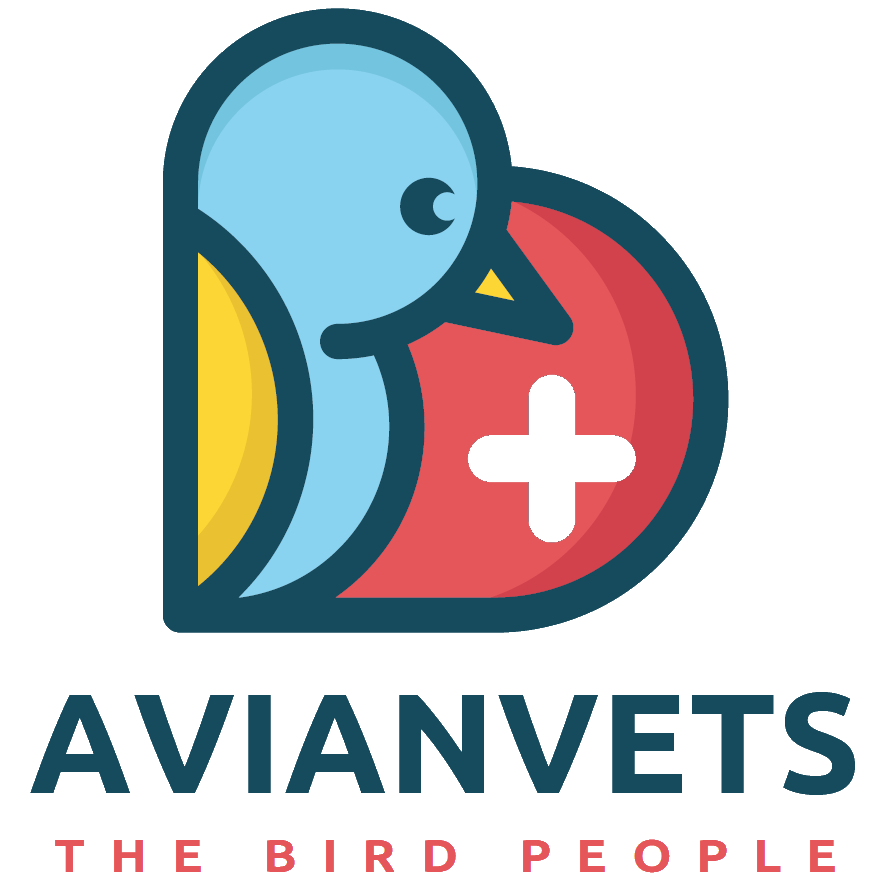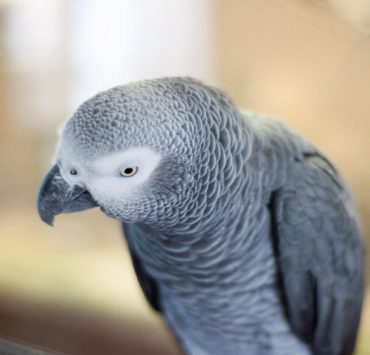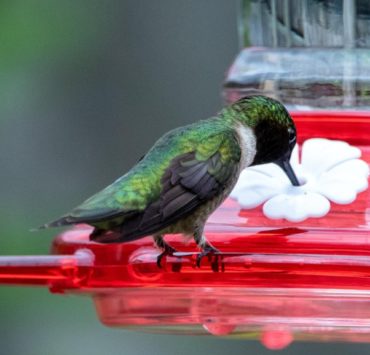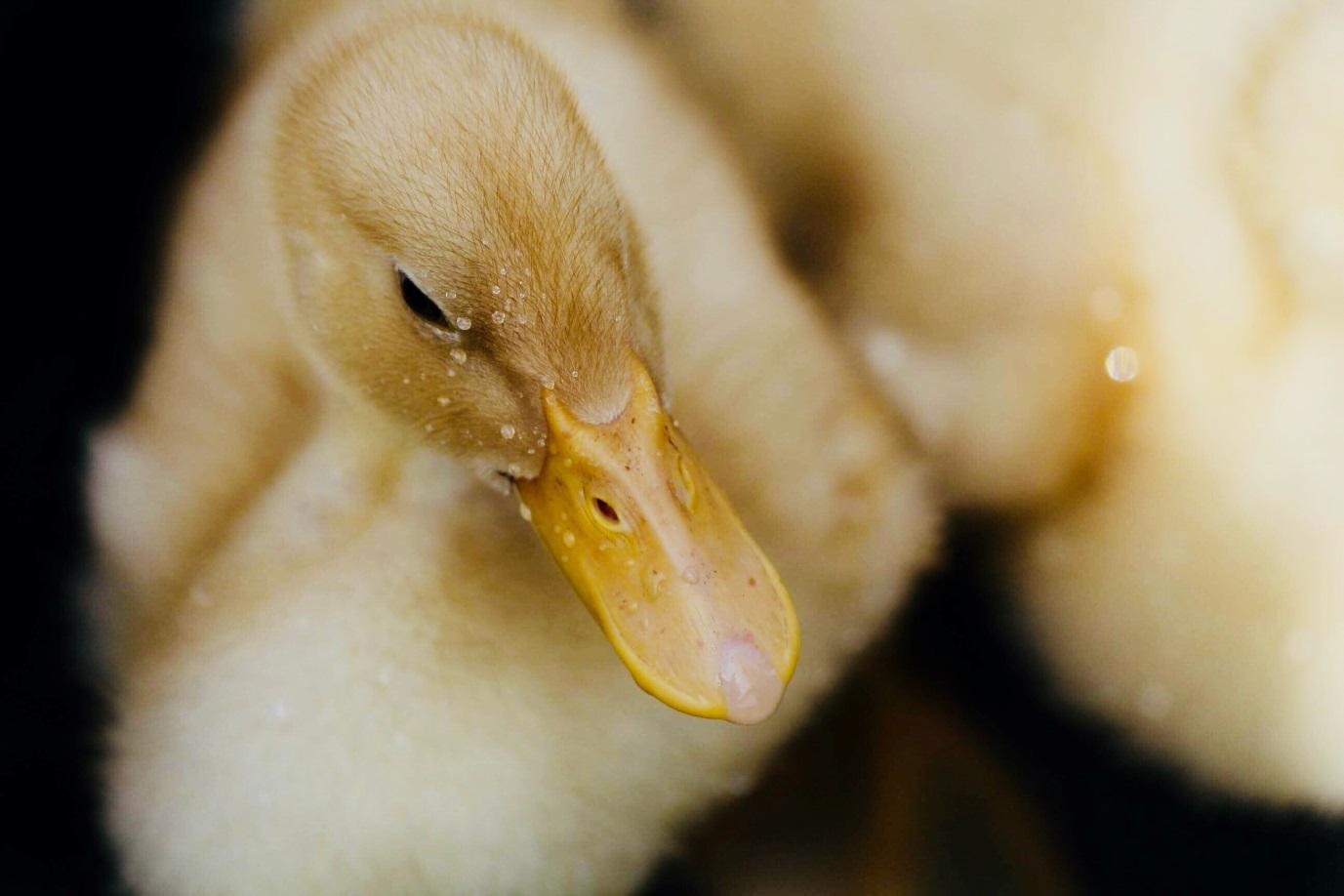
Did you know that ducks can live up to 20 years? That’s right. It is entirely possible to have the same duck from the time your child is a toddler right up to when you send them off to college.
In addition to the lifetime companionship they offer, ducks are surprisingly hardy, easy to care for, and inexpensive to maintain. Keep in mind that just because they are easy to care for doesn’t mean you should neglect them.
As non-demanding as they might be, there are some basic things you need to know how to do if you want to extend the lifespan of your pet duck for as long as possible. Without further ado, here’s everything you need to know about the basic care they require.
Raising Ducks 101: Know Your Duck Breeds
Let’s start at the beginning, shall we? Before you go off and pick a duck from your local duck pond (which is illegal to do), it’s important to mention that not all ducks are created equal. Some are domestic, while others are wild.
If you come across a duck walking about the park and even coming close to people, what you’re looking at, ladies and gentlemen, is a domesticated duck. It doesn’t mean you should take it home with you, though.
On the other hand, these domestic fowls can get caught up in a flock of wild ducks, so surely there has to be an easier way to tell them apart, right?
This brings us to the second rule of thumb: If you spot patches of white on it, even where you least expect them to be, that’s a foolproof way of spotting a domestic duck.
The two most common domestic duck breeds that exist are the Muscovy duck (Cairina moschata) and the Mallard (Anas platyrhynchos).
The Muscovy is the easiest one to spot, given its prominent red facial skin. It looks bumpy, which some people find a little gross.
It also has a small bump on the top of the bill, so if you see that, then you know it’s a Muscovy. On the other hand, Mallard ducks have little curled feathers above the tail, particularly on the males.
How Long Do Ducks Live
As we mentioned before, ducks can live for up to 20 years, but then again, it depends on the species.
Muscovy ducks, for instance, have an average lifespan of between eight and 12 years. Mallards live for about 10 years or so. Batam ducks have the longest lifespan and live for an average of 15 years.
As a general rule, the larger the breed of duck you have, the shorter its lifespan will be. Medium-sized breeds like Cayugas, Runners, and Blue Swedish usually outlive larger birds by two to three years.
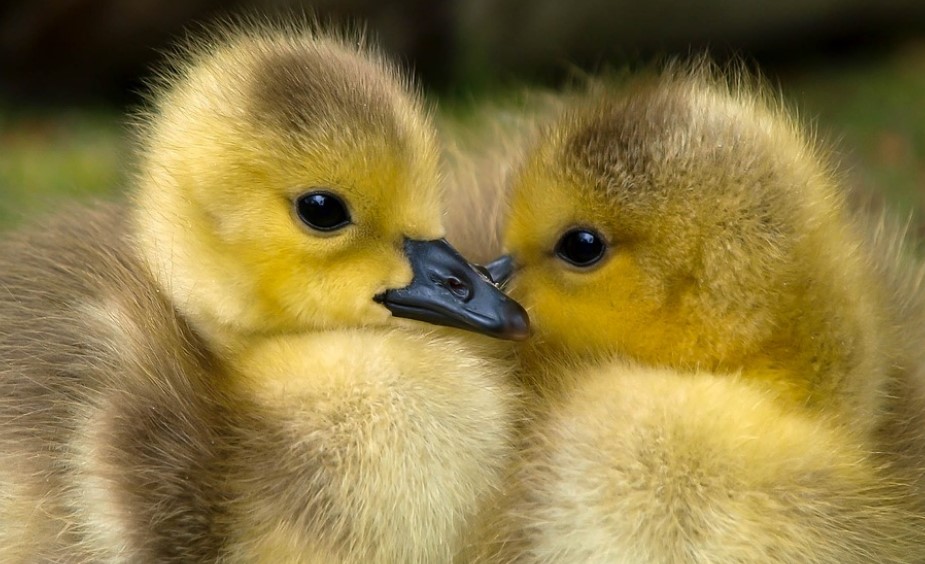
What to Feed Ducks
Some of the foods many people commonly feed to ducks include bread, cereal, crackers, and in some cases, even popcorn.
Not only are these foods not healthy for birds, but they also offer no nutritional value whatsoever. Feeding them food scraps isn’t a good option either.
Whether you’re raising ducks for eggs or simply keeping them as pets, you’ll need to give them safe and healthy balanced meals. They need to be nutrient-rich and have the right amount of vitamins and minerals to promote healthy growth and development.
You can get them special waterfowl pellets, which you’ll find in your local animal feed supplies outlet. Regular chicken layer feed is also great for ducks.
Growing ducklings, however, need a higher amount of niacin compared to their chick counterparts. Adding around 5 percent of brewer’s yeast is recommended.
Grown ducks eat between four and six ounces of feed per day, with the precise amount varying depending on the time of year. They tend to eat more during winter.
The best foods for ducks are what they would ordinarily forage for on their own if they were out in the wild, so think – grains, seeds, mollusks, and insects.
Here’s a list of what you can give them:
- Barley, wheat, and other types of grains
- Birdseed
- Cracked corn
- Grapes
- Leafy greens
- Mealworms
- Milo seed
- Nut hearts (unflavoured and unsalted)
- Peas
- Rice
- Uncooked oats
- Vegetable peels or trimmings (cut up into small pieces)
Keep in mind that ducks don’t chew – duh! Whatever food you give to them needs to be in the form of bite-sized pieces that they can easily consume without choking in the process.
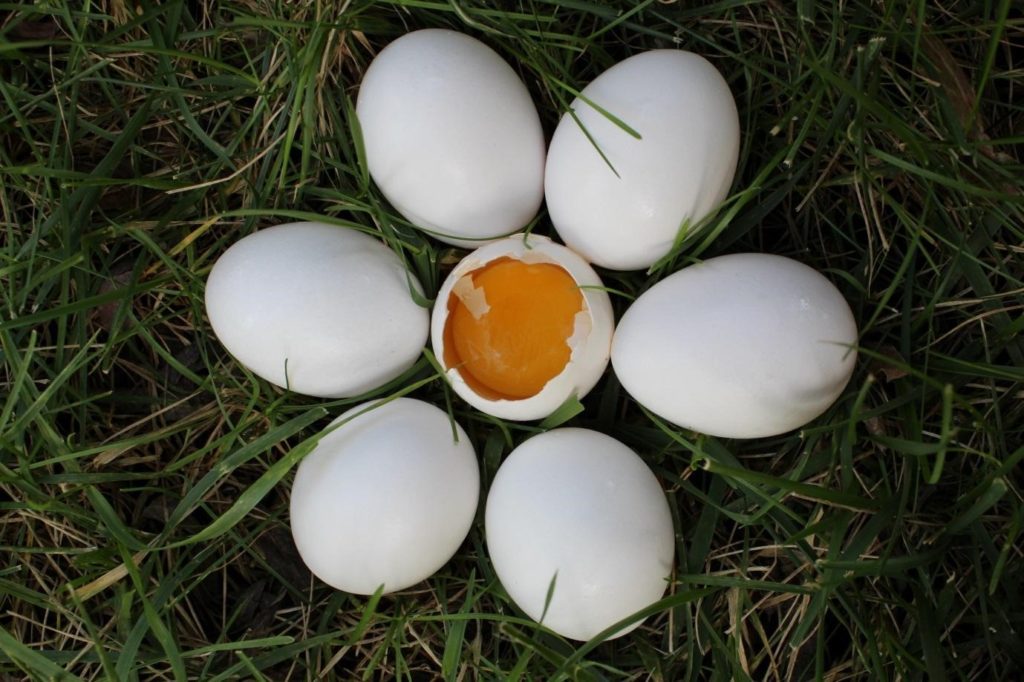
When Do Ducks Start Laying Eggs
Female ducks usually reach sexual maturity at 16-28 weeks. That’s when they’re old enough to start laying eggs.
Smaller breeds like Runners and Bantams start laying much earlier than larger breeds like Muscovy ducks. In the wild, ducks lay eggs seasonally, typically during spring, which marks the beginning of the breeding season.
Some breeds of domesticated ducks like Mallards still follow this routine and will typically begin laying at the start of spring regardless of how old they are.
Using artificial light in their duck pen to create the illusion of longer days (which is ideal if you want to keep your ducks laying all winter) increases the likelihood of them reaching sexual maturity faster.
On the other hand, if your ducks are already 28 weeks old and still haven’t started laying, it means they’re seasonal layers, and you might have to wait until spring.
How Often Do Ducks Lay Eggs
Just like chicken, these waterfowl lay eggs every day. It is not uncommon to come across some that lay an egg in two-day intervals.
Duck eggs are about 30 percent larger than regular chicken eggs and have a higher fat content, making them perfect for baked goods.
Most ducks lay white-colored eggs, although some may come out mint green or light blue. On average, they are generally better layers than chicken, particularly in the winter.
Final Thoughts
As low-maintenance as ducks may be, they are still susceptible to most avian diseases.
Keep an eye out for common conditions like Aspergillosis, Sour Crop, Bumblefoot, Egg Binding, and parasitic infestations. Proper and regular yard sanitization will keep most of these diseases at bay.
For more information on duck health, talk to a licensed veterinarian today through our online Vet Chat.
